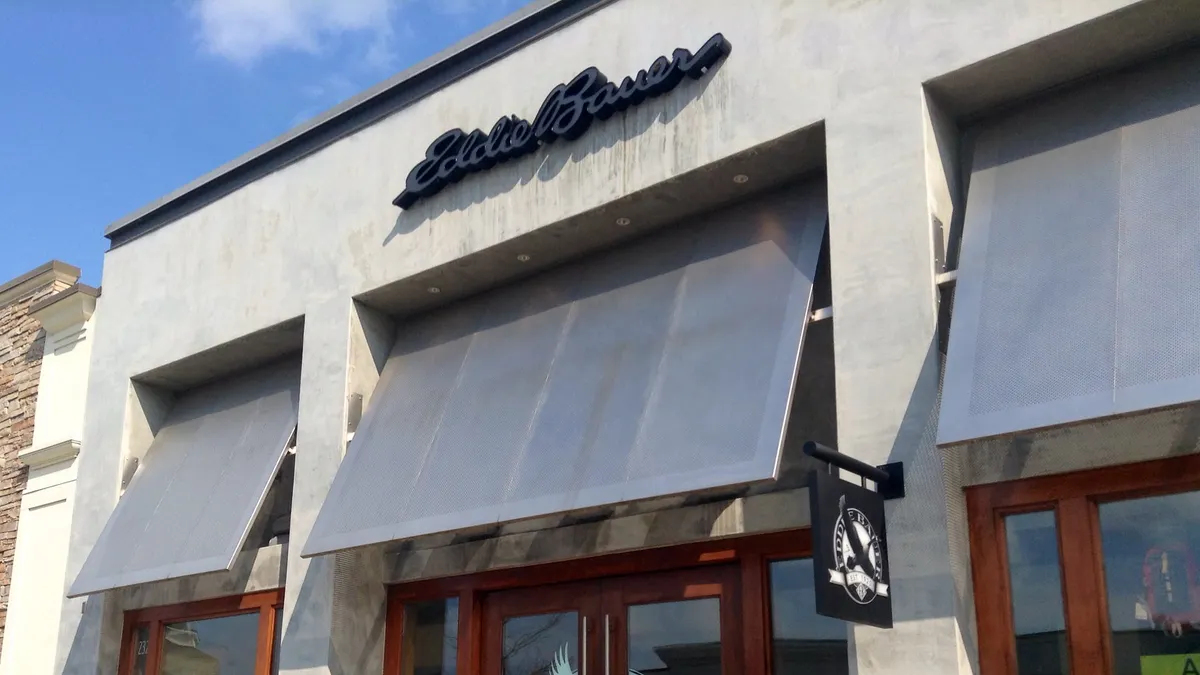A federal judge on Wednesday signed off on a plan that would give many customers of the bankrupt furniture company Mitchell Gold Co. the option to receive products that have been tied up in supply chain limbo for months.
The agreement applies specifically to those products being stored by Ryder Last Mile as it awaited payment from Mitchell Gold, which shut down abruptly and filed for bankruptcy in September, with its case converting to a Chapter 7 liquidation in October.
According to Ryder, it has been storing more than 2,000 items bound for Mitchell Gold’s end customers. Many customers waiting to receive their purchases already paid Mitchell Gold for the products as well as for delivery earlier this year — but Mitchell Gold never paid that money to Ryder.
‘A difficult situation’
Customers facing the prospect of additional charges to receive their long-delayed orders spoke at a bankruptcy hearing on Wednesday. “I've already paid for the delivery charge,” one Mitchell Gold customer said. “They're charging me twice for delivery when I paid the delivery charge already.”
Others noted concerns about paying storage fees that accrued while Ryder was holding Mitchell Gold products in its warehouses. “I get that it's a difficult situation,” another customer said. “But we didn't ask for the delivery to be delayed by months.”
“I get that it's a difficult situation. But we didn't ask for the delivery to be delayed by months.”

Mitchell Gold customer
Ryder had said previously it was charging Mitchell Gold $4,140 a day in storage fees for undelivered products, fees that could have fallen to customers who wanted their products delivered.
Ryder, however, now plans to waive storage fees for Mitchell Gold customers who pay to have their purchases delivered, according to John Carroll, an attorney in Cozen O'Connor’s bankruptcy and restructuring practice who is representing Ryder.
“Ryder heard the concerns of Mitchell Gold customers regarding possible storage fees and … in an effort to ease the burden on these customers and help expedite the delivery process, Ryder has decided to forego charging any storage fees to Mitchell Gold customers,” Carroll told sister publication Supply Chain Dive Thursday in an email. “Ryder is only charging for delivery fees (not storage).”
As for the delivery fees, Ryder and its attorneys have explained in filings and at hearings that the logistics provider never received payment from Mitchell Gold to deliver products to end customers, even though the furniture company collected delivery fees from those customers.
In between receiving payment from customers for delivery and when it would normally have paid Ryder for those services, Mitchell Gold’s banker, PNC, took cash directly from Mitchell Gold’s accounts for loan repayment.
In a September affidavit, Mitchell Gold’s chief restructuring officer accused PNC of taking aggressive actions that dramatically reduced the company’s liquidity. The ultimate result was that “customer deposits made in good faith were swept by PNC, and the ability to fund vendors and other ongoing needs were choked off,” the affidavit stated.
Those who paid Mitchell Gold delivery fees can file a claim through the bankruptcy process, but whether they could get repaid is an open question.
In approving the protocols for delivery from Mitchell Gold and Ryder Wednesday — after previously asking that the plan factor in consumer rights under state laws — Judge Laurie Selber Silverstein noted that the delivery process was voluntary for customers.
“We're in an unfortunate situation here. Clearly, customers will have the right to say ‘no thank you’ if the fees are too high.”

Laurie Selber Silverstein
Chief Judge, U.S. Bankruptcy Court - District of Delaware
“We're in an unfortunate situation here,” Silverstein said. “Clearly, customers will have the right to say ‘no thank you’ if the fees are too high.”
The products Ryder is holding that go unclaimed will most likely be treated as inventory collateral subject to liens of the secured lenders, giving those lenders primary control over any liquidation process, which would also be subject to state and other laws, according to Carroll.
Ryder isn’t the only logistics provider currently in possession of Mitchell Gold products. An attorney for another company, Need It Now Delivers, said at Wednesday’s hearing it doesn’t yet have complete enough customer information to develop delivery protocols but was working to get a full list.
A second life for the brand
Meanwhile, Georgia-based home goods company Surya announced this week it has acquired the 34-year-old Mitchell Gold + Bob Williams brand previously owned by the bankrupt company.
“We are dedicated to restoring MG+BW to its former glory and beyond, and we look forward to redefining the standards of excellence in the home furnishings industry," Surya President Satya Tiwari said in a press release.
Surya plans to restart manufacturing and assembly operations at the Mitchell Gold + Bob Williams facilities in Taylorsville, North Carolina, and expects to start shipping products under the brand name in Q1 of 2024.

























